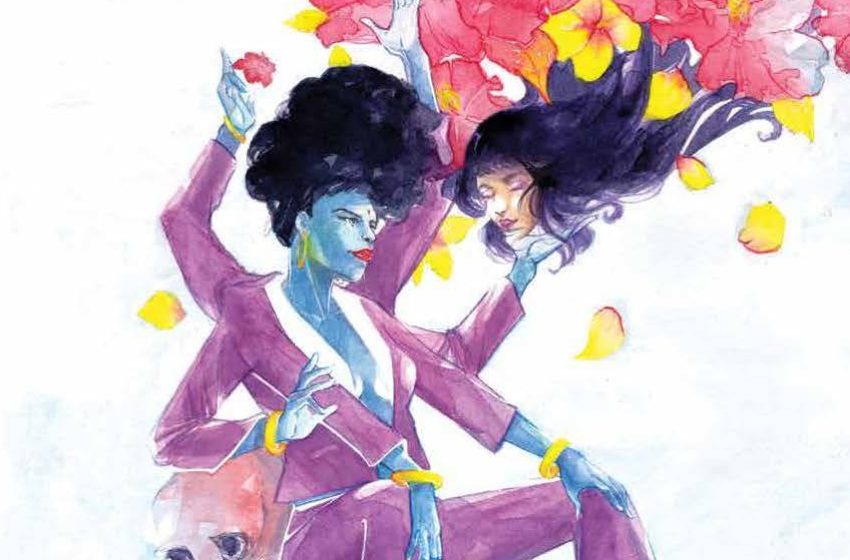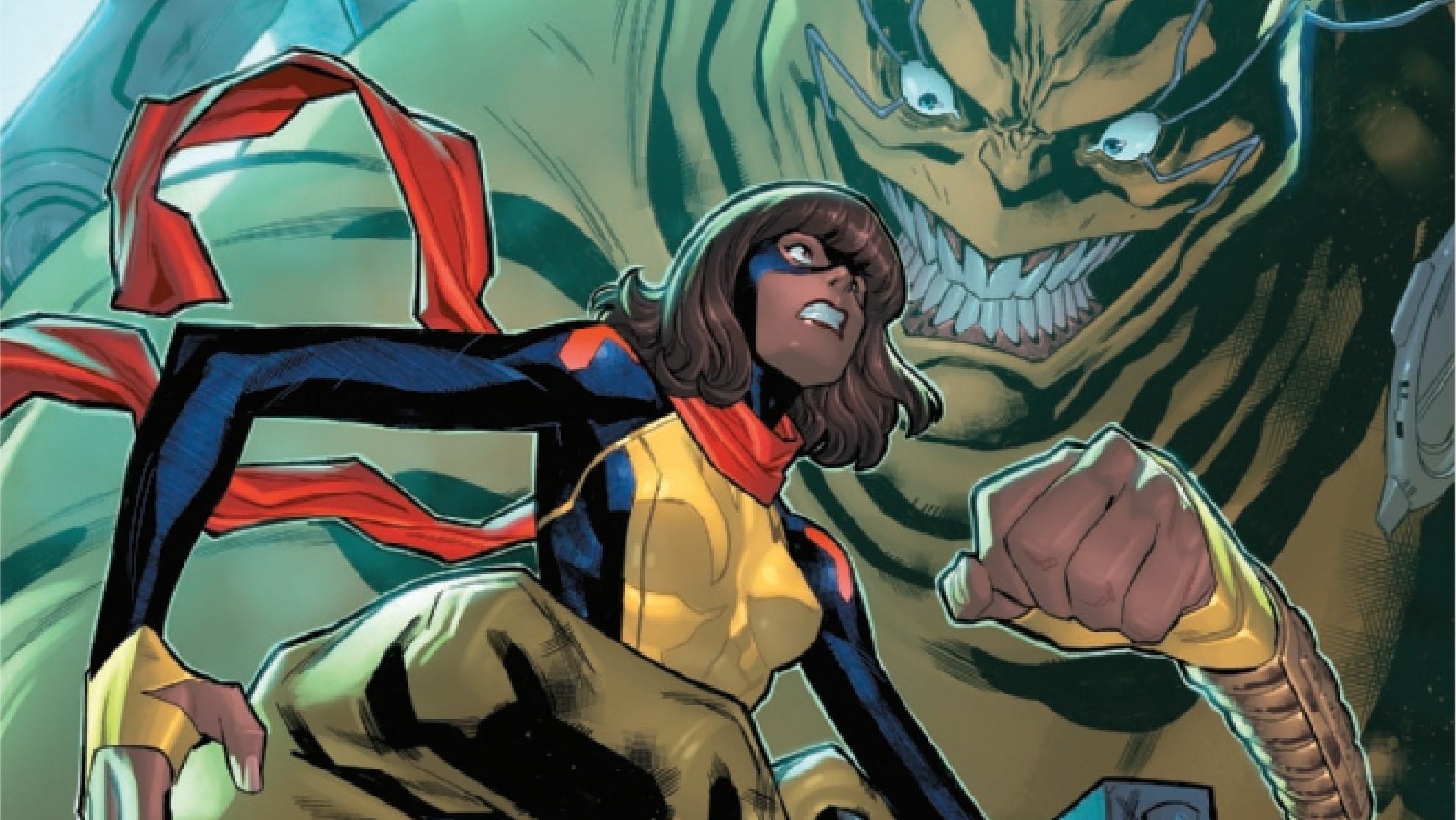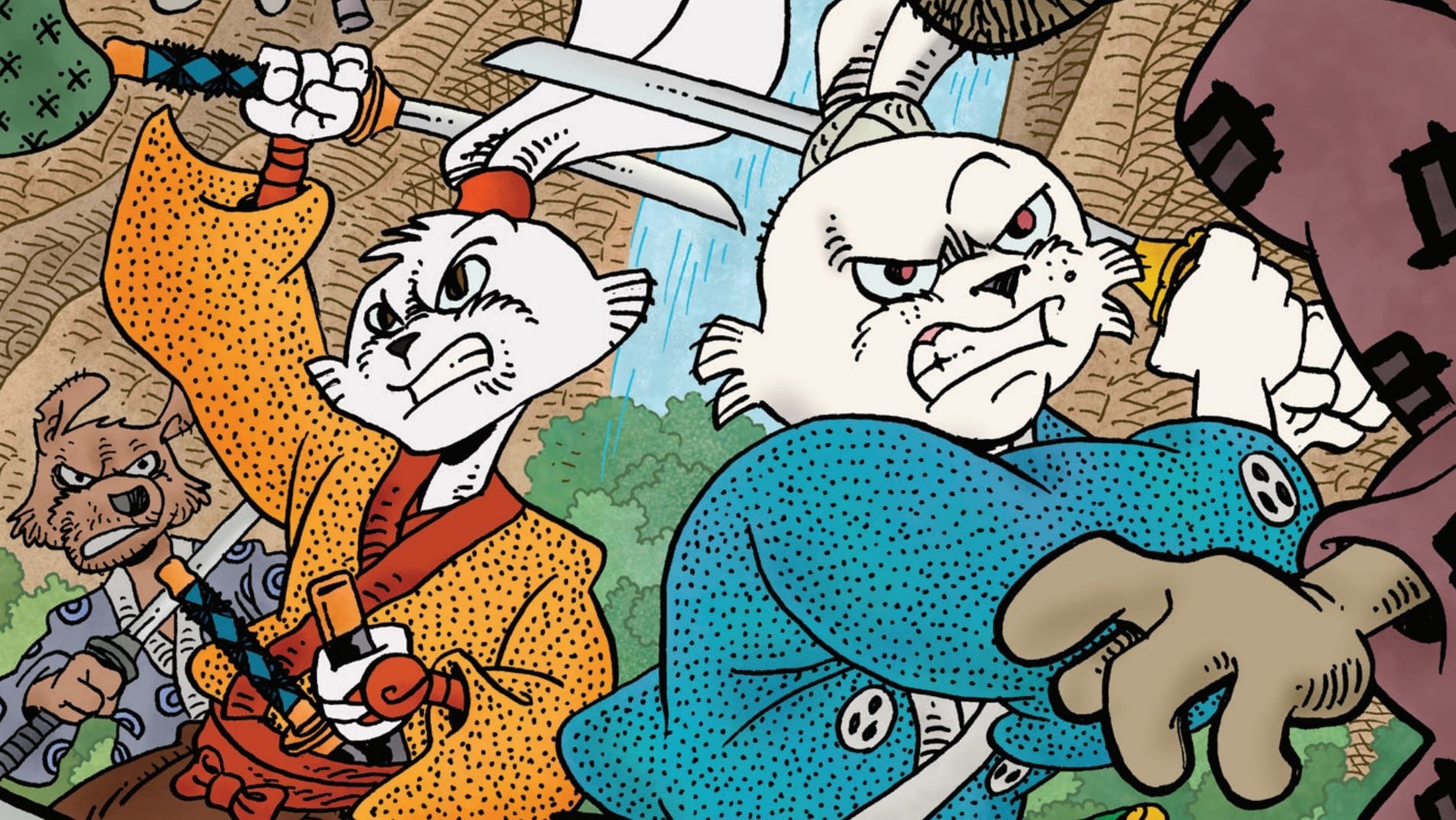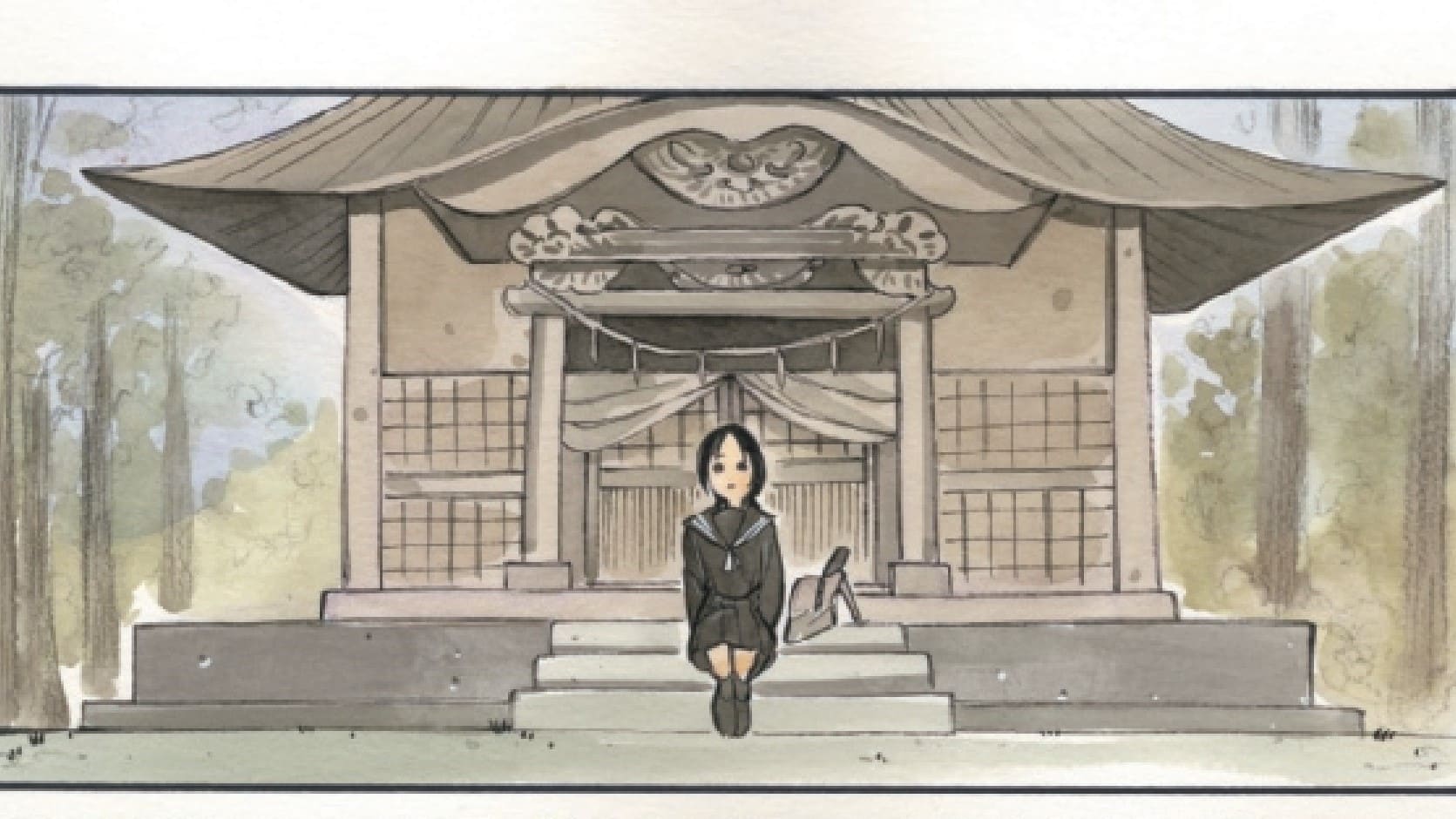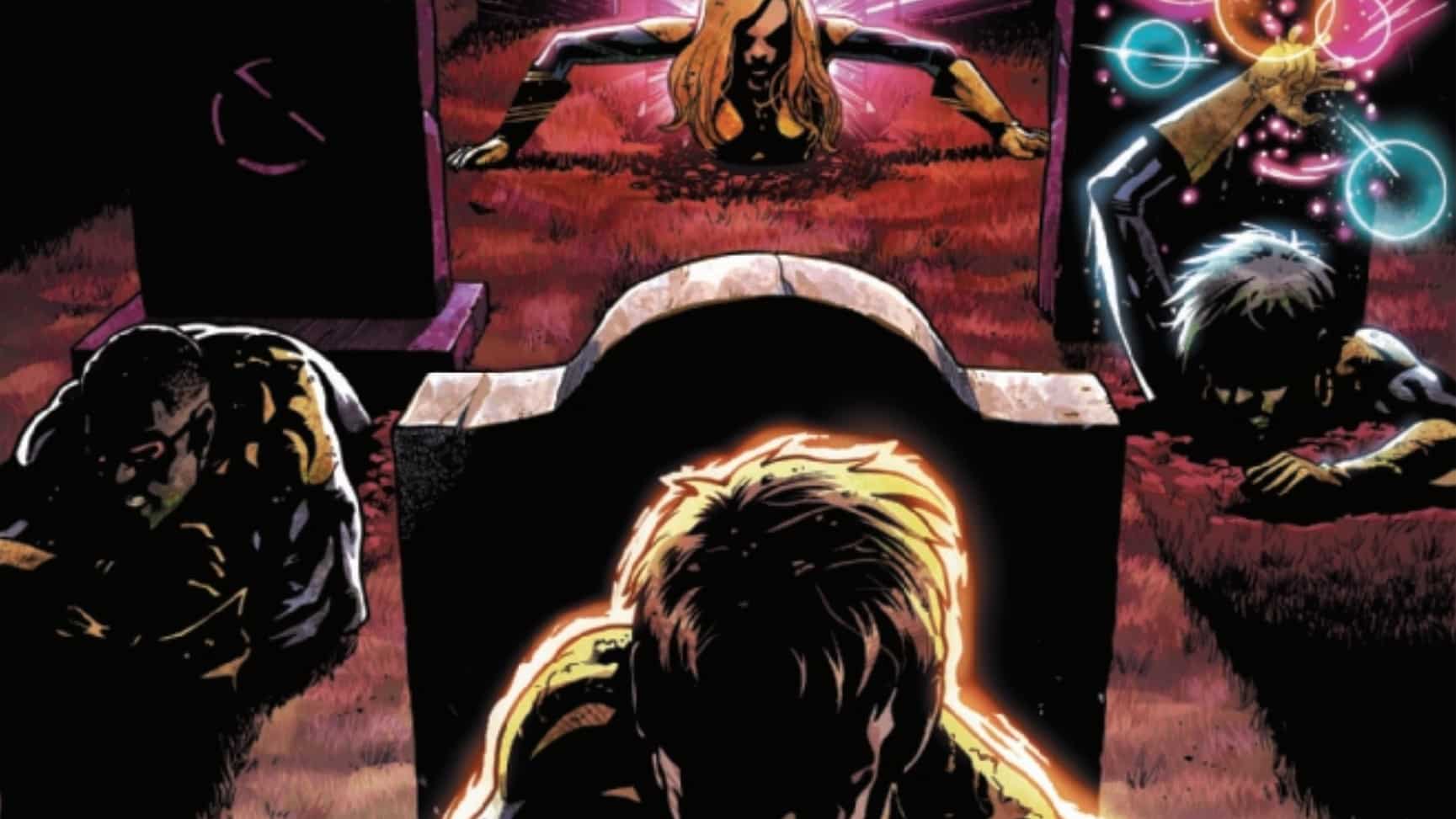Laila Starr has finally tracked down Darius Shah. For the first time since Darius’ birth, Laila knows whom she’s dealing with, but at this point, what is there left to say? How have the years treated Darius in the meantime? And, most importantly, what is to become of the last Chinese temple left in Mumbai? Written by Ram V, illustrated by Filipe Andrade, with color assists by Inês Amaro, and lettered by AndWorld Design, we bring you The Many Deaths of Laila Starr #4.
Armaan Babu: Gone, gone, the fires of youth, and rise an old, embittered truth. Despite having grappled with death at an early age, the latest death in Darius Shah’s life hits him especially hard. The Many Deaths of Laila Starr #4 is our biggest time jump yet and happens to be our most significant plot advancement — though I’m getting ahead of myself here. What are your first impressions about this issue, Andrea?
Andrea Ayres: The previous three issues of Laila Starr have delicately layered tension between Darius and Laila. In The Many Deaths of Laila Starr #4, that build-up pays off stunningly and painfully. I’ve reread the issue twice. My impression of the issue? It demonstrates the incredible power of restraint. Let’s get at it.
The Last Chinese Temple in Mumbai

Armaan: Have you ever been to a tourist location during the offseason? Maybe one so unpopular, it was empty? Or to a theater on the morning of a play, hours before anyone else is there? The emptiness is unique. You feel the splendor of what it ought to be, what it wants to be, but everything is quiet. It’s waiting to be seen, loved, celebrated. It’s into this quietness that Laila Starr walks when the issue begins, and the quietness is carried throughout.
Andrea: Yes! There is a quiet beauty to public spaces before they feel well, public. Visiting those spaces before they fill with limbs, chatter and movement also strips them away from their magic. You get a real sense of how people breathe life into an environment. That’s not to say physical spaces aren’t impressive, but they lose some of their vibrancy, their sheen. There’s an entire field of study dedicated to how physical spaces are embodied and experienced, but I won’t get into that here.
When Laila visits the temple at the beginning of the issue, it reminded me of the different states of emptiness we encounter. There’s an emptiness filled with anticipation and expectation. Emptiness has a color, a feeling, a texture, and each is on display in The Many Deaths of Laila Starr #4.
Through a vignette, we are introduced to a character named Wei. I’ve become appreciative of the use of these interstitials to show the complexity of the city, life and all the people (and places) we come across but never stop to consider. How do you feel about these short dives into Mumbai?
Armaan: So Ram V’s brought in a hidden gem of Mumbai tourism — the Kwan Kung Temple. I looked it up as soon as BOOM Studios released this issue’s preview, and everything I learned about this temple is more charming than the last. Much like the mention of the Mumbai riots in the previous issue, the history’s modified and simplified. It’s amazing to find out that aside from the Chinese New Year, it’s still just as likely to be empty on any given day as it is in the comic. Just look at a few of the stories here: “We climbed up the three-storied wooden building and asked the lady caretaker for the keys, opened the temple, and handed them back after we were done.” It turns out they lock the doors now, but it’s still as open to the public as ever.
Filipe Andrade has done a fantastic job of recreating the temple and capturing its charm. The Kwan Kung temple is a quiet experience, removed from crowds. You walk into the temple with a hushed reverence as Laila does.
Gone is the bustling businesswoman of issue #1, or the hedonistic fire of the party we saw the last issue. This issue, Laila’s a lot more unsure of herself. Less bold and more lost, in more ways than one, matching the issue’s tone. A little guidance from a god, and Laila finds herself in another quiet home, in a quietness defined by its absence.
I Saw You

Andrea: Laila is in the home of Darius as she rifles through his belongings. We see snapshots of the past 16 years. He is 36 years old, and a lot of life has happened. Darius appears haggard. Gone are the curious boy and awkward teenager.
The confrontation between Darius and Laila is uncomfortable in a way difficult to describe. We have been waiting for it. There shouldn’t be anything surprising about it, but it is. The introduction of Darius in the first issue and the prophecy that he will bring immortality to the world set up a series of expectations for his character. In this issue, those expectations shatter — instead, we see a broken man beset by loss, grief and anger. Darius is not the formidable opponent either Laila or the reader has anticipated.
Darius catalogs his losses: his childhood friend Bardhan, his teenage idol Zafar. He’s been drinking, and he still is. He pours his sorrows into a glass. The issue does beautiful work with the way it captures the passage of life’s moments. Some seconds feel like infinity, where decades can pass without much thought at all. That’s what is happening here, with Darius, his drink and Laila. We observe the glass and its contents. We watch Darius, waiting to see what he will say or do. The pressure mounts.
KRRASH. The glass breaks.
The panels on Pages 16 and 17 are harrowing. In two short pages, we feel the aching, horrific entirety of Darius’ loss. The death of his beloved wife, Menaka. The myth of Menaka says she is an Apsara, a beautiful celestial dancer. Are you familiar with the legend of Menaka, Armaan?
Armaan: You have me at a disadvantage there; actually, this is the first I’m hearing about her! Looking Menaka up, her story is a familiar one. We see a similar seduction with Buddha, as the god Mara sends beautiful women to distract Buddha from attaining enlightenment. Indra sent Menaka to prevent Rishi from creating enlightenment. The message seems to be when the mortals begin contemplating something genuinely extraordinary. The gods get nervous and try to prevent them from their objectives.
The gods weren’t quite as gross in this tale, but we do see some parallels. Menaka’s death spurs Darius to end death, once and for all. This may not have happened had she been around.
I feel his grief. Its broken anguish permeates the house, painted by Andrade’s colors, which lose their vibrancy. Weariness hangs off the face of Darius. Later, we witness the rage of an empty man who believes he will never be whole again. I wish the turning point of this comic didn’t hinge on the fridging of Menaka.
There are other ways the story could have been told. Other deaths, perhaps, that could have happened, or just the fact that ending death has been something mortals have been trying to achieve for their entire existence. I’m not a writer [Grote’s note: Bud, your output on this site says otherwise] — maybe this narrative choice was necessary, but it leaves a sour taste in my mouth. Especially since the name choice seems to be doubling down on this idea — Maneka was the perfect, beautiful angel of a woman who had to die so our story could happen.
In the confrontation, we learn there’s a reason Laila’s been so meek this issue: Being a mortal is weighing on her. When you’re Death, answers are simple. Less so when you’re alive. For the first time in her very (technically) brief (technically) life, Laila is afraid.
Andrea: I want to mention the confrontation between Laila and Darius once more. It shows how violence can be portrayed without traditional weapons. The rage of Darius is as fierce as any I’ve seen. Where machines of war are so often stand-ins for emotions, here we have the real deal. It is uncomfortable to witness, and that’s the point.
When it comes to Maneka, I’m not sure we know enough about what will occur to conclude she is why Darius exists as a character or why this particular story occurs. That isn’t my reading anyway. Maneka’s death seems to have put him off his journey.
Running out of Time

Andrea: It’s true what you say Armaan, Laila doesn’t have the same ferocity of previous issues. It’s not only the weariness of life but also of death. She’s coming at it from a different perspective as a mortal. Death is so commonplace, as we see with the flood of the Chinese Temple on Page 22, the names of the dead go unmentioned. As a god, death was an event. Yes, there was a routine to it, but there was energy behind it. Now it is so ubiquitous as to be banal.
What has been amazing to me is that Laila’s brush with mortality appears to be the cause of death. At the end of the issue, we see Laila crying in the temple, her tears cascade down the stairs, there is a flood. I’m so curious to see how this all plays out. What did you think about this?
Armaan: We’ve seen so many different faces of death. With the first issue, we see the chaos. The second issue shows the importance of death to those left behind and how rituals can ease the passing. In issue #3, we saw death as a spark for the living to burn as brightly as possible. Finally, in The Many Deaths of Laila Starr #4, we explore the hollow soul collapsing on itself.
Darius and Laila come at this from opposite sides. Darius is broken by death. Laila is broken by life. By understanding how she is bound to mortality, the fear of what she has done weighs on her. We don’t hear from the temple again, or the god inside. All we know is that it, too, falls apart without the mortal that made it work.
Andrea: The newspaper Laila reads at the end of the issue, “Worst flooding in years claims last Chinese Temple in the City,” is an encapsulation of how humans funnel emotions into physical objects. The temple is a place where people stored their faith, dreams and fears. It floods, along with the rest of the city. The death and destruction are beyond human comprehension. So we try to represent the totality of destruction in simpler terms, through a stand-in for humanity. What do you think, Armaan, will Darius end up succeeding in inventing immortality?
Armaan: I’m trying to think of the aspects of death we’ve seen so far. What is left to explore? The only thing I can think of is the final act of moving on. I don’t know if Darius will invent immortality or not, but I do think Laila may find what she needs to move past the god she was. I believe Laila will embrace life and move past Death. It’s a comforting thought.
I may be ultimately off base, though, so I’ve got my backup comforting thought to lean on: Out in the real world? The last Chinese temple in Mumbai still stands, and I look forward to visiting it the next time I’m in the city.
Musings from Mumbai
- Current tally for the deaths of Laila Starr: 5
- We get to see the gods again, briefly! Agni, Brahma and the Goddess still obsessed with her corner office, and Taxes — who I still believe is a riff on the Goddess of wealth, Lakshmi.

